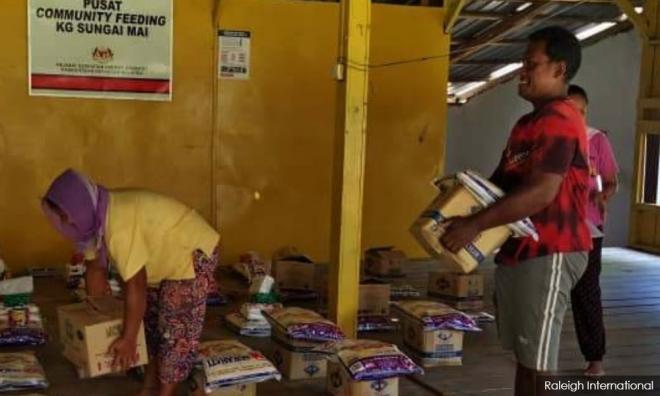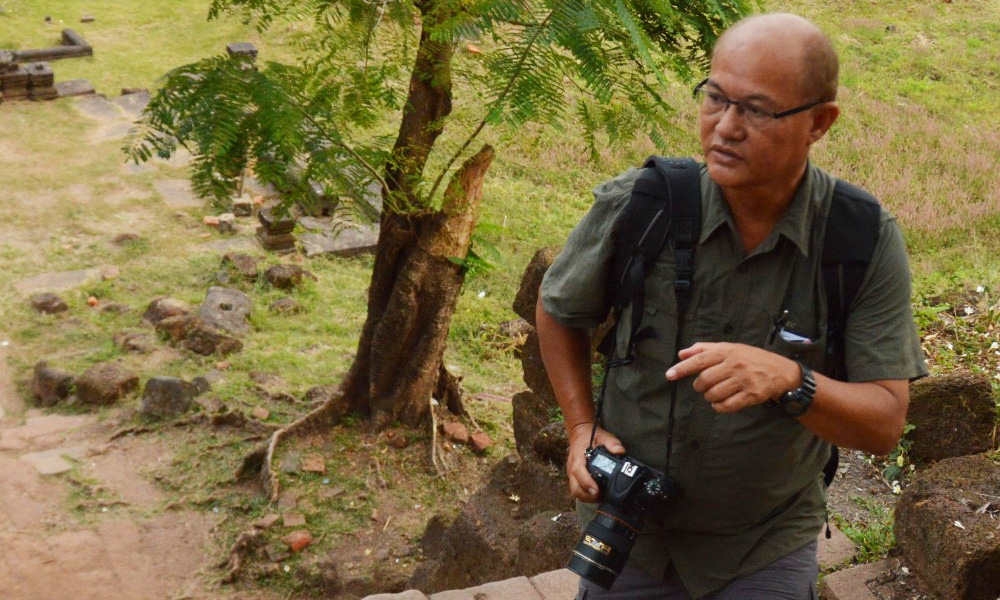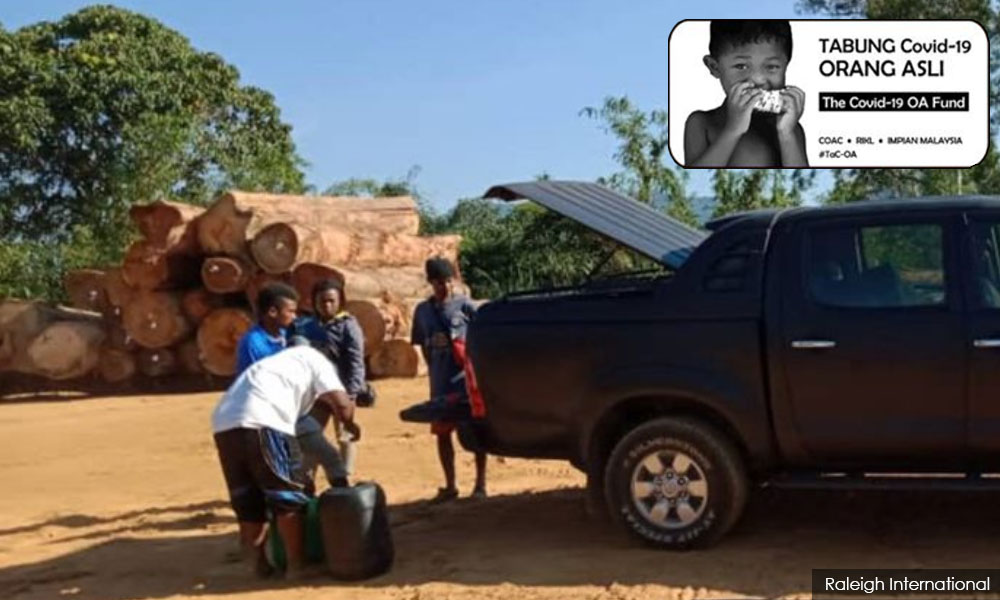
CORONAVIRUS | The move by Orang Asli to retreat into the forest following the outbreak of the Covid-19 disease is a natural form of self-isolation, says Centre for Orang Asli Concerns director Colin Nicholas.
“The fear is very strong and I was taken by surprise. As soon as the movement control order instruction came, there were many communities that set up blockades. Not just any blockade, but so tight that even a motorbike can't pass through.”
“Those were in the communities that are more established permanently in their villages. With other more mobile and nomadic Orang Asli tribe – the traditional way of solving epidemic is to just abandon and go to the forest. Effectively to self-isolate,” Nicholas told Malaysiakini.
Nicholas, who has worked with the Orang Asli for more than three decades, was commenting on reports that half the community in Jemeri, Pahang had fled into the surrounding forest in fear as news of the first Orang Asli diagnosis of Covid-19 spread.
This was after Jakoa director-general Juli Edo confirmed that a three-year-boy from a village near Cameron Highlands had tested positive for the coronavirus and is undergoing treatment. While both are in Pahang, Jemeri is some 440km away from Cameron Highlands.
"We are going back into the forest, to isolate ourselves and find food for ourselves. We know how to get food from the forests and there are some things that we can plant there,” villager Bedul Chemai was quoting as saying.
“It is not just the Covid-19. In the last few years, there have been cases in Grik, Perak with people dying of flu, so the Orang Asli are very aware and quick to react,” said Nicholas
Nicholas (below) also confirmed that Bateq villagers in Kampung Sungai Kuala Koh which was affected by the deaths of 16 villagers last year, had largely abandoned the area.

A spokesperson from Jakoa confirmed that the body had taken steps to isolate the Orang Asli and reach out with food and other supplies.
“On March 16 Juli Edo announced that there would be no meetings or interactions with outsiders to be held in Orang Asli villages in order to protect them.
“Jakoa is working with state governments, the federal government, welfare department and NGOs to help Orang Asli villages with Bantuan Bakul Makanan (a food aid programme) to help them survive during this MCO and some villages have already received the aids,” said the Jakoa spokesperson who confirmed the directive that any official statements on Covid-19 related news must be solely from the National Security Council or the Ministry of Health.
The spokesperson also cleared up a misunderstanding over a Facebook post showing a patient under quarantine at the Jakoa quarters in Kluang, Johor.
He confirmed that the quarters had been converted into a quarantine centre but that the patients themselves were not Orang Asli and neither were they Jakoa staff.
Food supply
Nicholas confirmed that while these efforts were necessary, it was very difficult to keep the Orang Asli isolated yet give them access to food and medical supplies.
“This is a national situation. Almost every OA community is affected, whether deep in the forest or those on those fringe, the urban dwellers and so on.
Most affected are those smallholders depending on selling produce such as rubber, oil palm and serai.
"If they don't sell there’s no income, and even if they can sell rubber it’s at a low price, and then sometimes the buyers don't want to come in,” he said.
He also cited a situation in which people mean well but could lead to exposure of the Orang Asli.
This concerned the allocation of RM168,000 by Jakim in aid to the Orang Asli as part of the Tabung Musaadah Covid-19 Jakim. However, it appears that Jakim’s method of distribution through a team of officers would involve much unnecessary exposure for communities up and down the country.

Nicholas and his group have teamed up with Raleigh International and Impian Malaysia (IM) to raise around RM100,000 for Orang Asli villagers but more is needed.
“We already reached RM100,000 in few days but we distributed very fast amongst the villagers. We work differently. We are about support and self-reliance and not charity.
"We send money to a trusted local coordinator and they decide what to buy,” said Nicholas who says the organisations coordinated with Jakoa and NGOs to avoid duplicating work.
“For example, those working with the community near the landfills in Bandar Muadzam Shah, Pahang, the Global Peace Foundation they said they will handle it,” he added.
Another activist told Malaysiakini that the moves taken thus far have been for the best.
“As OA villages are frequented by traders, do-gooders and religious groups (church and pendakwah), shutting off any programmes definitely can keep the virus from being brought it from outsiders which will have interactions with many more potential virus-spreaders out there.”
“However, this could result in the aid distribution process being slower than it should be. We also recognise the limitations and restrictions of Jakoa to be serving all the OA families, especially those that are located far away and only accessible by 4wd vehicle,” said the activist.
Nicholas said that Jakoa was doing a good job in difficult circumstances. “I don’t blame them. They are short of funds, the office is close, everyone wants aid, they have 853 official villages to look after, and they are just a government department.”
Sources have told Malaysiakini that Jakoa is poised to be moved back to the purview of the Rural Development Ministry.
Under the Pakatan Harapan administration it was under the National Unity division of the Prime Minister’s Department headed by Minister P Waythamoorthy. - Mkini



No comments:
Post a Comment
Note: Only a member of this blog may post a comment.